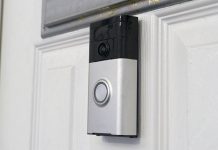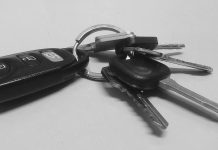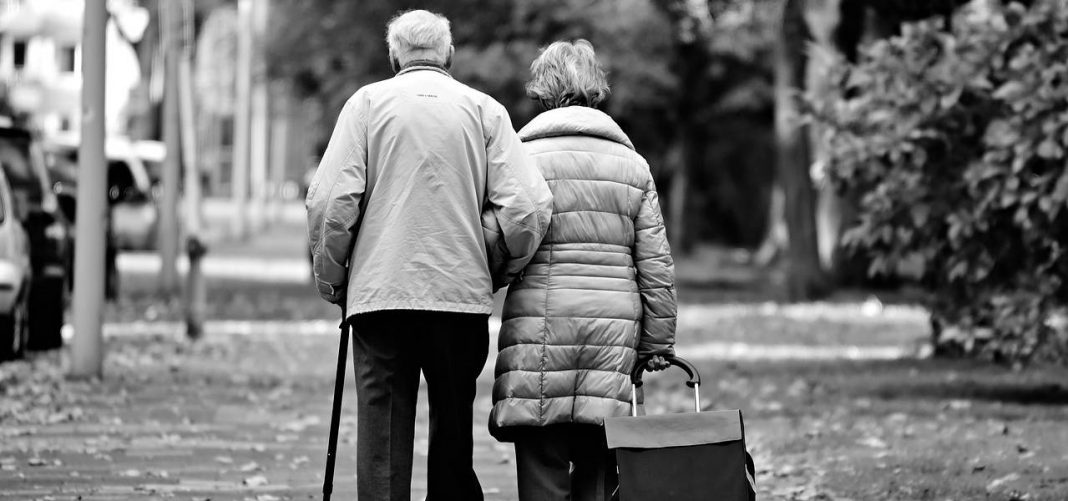UPDATED February 10, 2022 This piece has been updated to reflect the emergence of new technology


Christian Mathews Security Writer
The elderly are more susceptible to falls. In fact, 25% of Americans aged 65+ fall each year. This is also why falls form the most common cause of injuries in people aged above 65 all over the world. Some falls are just irreversible and cause life-threatening situations. What are the causes of falls in elderly and how can they be prevented?
1What Do The Stats Say
According to stats, about 30 to 50% of the total falls in the elderly result in minor injuries like bruises and abrasions, but about 10% of the elderly face serious injuries resulting in fractures and intracranial injuries.
The other most common injury faced by the elderly is hip fractures. However, both serious and minor injuries to seniors can be fatal and could also lead to traumatic brain injury.
The good news is the advancing age has nothing to do with the fall injuries. Elderly between 64 and 84 years are equally susceptible to such falls as those above 84 years. All that matters is a strong will and good health.
The 30% of the elderly’s falls are slipping in bathrooms, stumbling, or tripping over carpets. Such preventions like restraints, bed alarms, and fall alert bracelets have reduced the fallers by 21% according to the statistics of the year 2015.
2Why Do The Elderly Fall?
To understand this better, it’s important to know the causes behind the elderly’s fall. Knowing the prime causes of elderly falls can help in narrowing down the precautions beforehand. If you have elderly in your home, make sure you make all the necessary changes in your home before they get hurt.
Poor balance
Poor balance is the foremost reason for most falls in the elderly. As people age, their muscles become weak due to a lack of physical exercise that results in the poor balance of the body.
The poor balance could also be a result of certain underlying diseases like Parkinson’s or stroke. It could be caused due to dizziness.
Dizziness
Each of the causes of falls in the elderly are interrelated. Poor balance can happen because of dizziness, even dizziness caused in the elderly is related to other reasons.
Dizziness in elderly can be caused by a sudden drop in blood pressure while suddenly standing or sitting. Elderly with hearing problems or inner ear problems are more vulnerable to sudden dizziness also. Dehydration and heart problems can also be a reason for light-headedness in the elderly.
Fainting
Another major cause of elderly falls is fainting. In the elderly, fainting or blackouts can occur in washrooms early in the morning during bowel movements majorly. The major causes of fainting could be irregular, slow, or high heart rate.
If, as an elderly, you are facing blackouts more often, you can consult your doctor and can get it treated successfully.
Foot Problems
Corns, bunions, and calluses are more common in the elderly. This could happen because of ill-fitted shoes and other reasons.
Numbness in feet during diabetes can also increase the chances of falling, failing to sense the feet. However, foot problems, when treated with care, can eliminate the chances of falling.
Memory Loss
Another common change people face with age is memory loss and dementia. Memory loss leads to confusion and makes it difficult for the elderly to analyze things properly. They take more reckless decisions through their false perceptions, increasing their chances of falling.
Vision Problems
Poor hearing and poor vision also increase the chances of falling as misjudging the gap between stairs and spot slips becomes a more frequent phenomenon.
In elderlies, as age progresses, their ability to adjust to the sudden change in lighting diminishes. Cataract, glaucoma, and other such vision-related problems also increase the chances of falling.
3How To Prevent Falls In The Elderly
Now that we know the causes of falls in elderly, it is time to prepare. Here are a few changes that are necessary to make in your house or in the lifestyle of the elderly to prevent their falls:
- They should wear non-skid and protective footwear
- The house should be well lit to reduce the dangers of falling because of vision problems
- Don’t use rugs and carpets. If used, tape and fasten them to the floor to eliminate any space between the two
- The bathroom should have grab bars, railings put around the toilet seat, washbasin, and near the shower area
- Handrails should be there on both sides of stairways
- The sideways and walkways of the home should be even and too smooth as well
- The elderly person should wear a alert bracelet
- Make sure there is a First aid kit handy.
4What To Do After A Fall Has Occurred
If accidentally a fall has occurred, here are the first things to do:
Treat The Wound
If the fall resulted in any visible wounds, treat it first handedly.
Visit The Doctor
If the fall resulted in some severe pain and an invisible wound, consult your doctor. Get the necessary assessments done. Explain all the symptoms to the doctor such that no new underlying illness due to the fall gets undetected.
Get The Blood Pressure And Pulse Reading
If you visit a doctor after a fall, he will approach you for getting the blood pressure and pulse reading.
They take blood pressure while standing and sitting too to notice any abnormal drop in blood pressure because of the fall. Accordingly, he will medicate the elderly.
Get The Blood Tests
To stay at a safer side, blood tests is another important thing to do after a fall. This is done to check any abnormalities in the blood, especially if they already have any underlying problems like diabetes.
The most common blood test includes the CBC, i.e., the complete blood cell count and checking of electrolytes and kidney function.
Supplements
The doctor will suggest some supplements to strengthen bones like Vitamin D and Calcium supplements to get over with the shock the body falls in.
5Conclusion
Understanding what are the causes of falls in elderly, allows you to better prepare for different possibilities. This helps in prevention and creating a safe environment for your loved one. Having a medical alert bracelet for the elderly is another measure that can be put in place, should something happen. That way response can be quick and effective.

















































